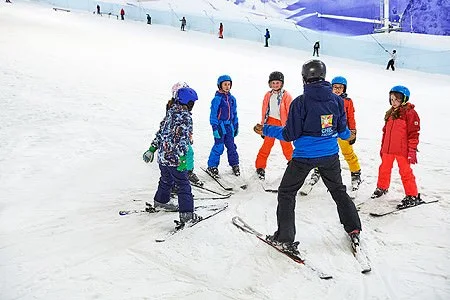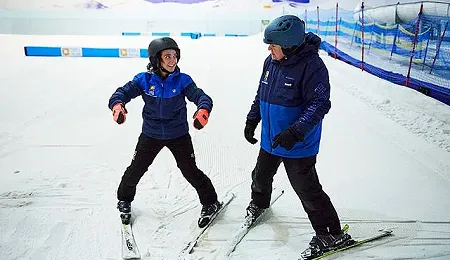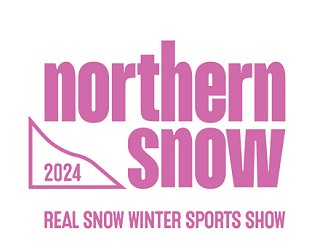How do you get better at skiing in the off season?

Over the summer, it’s natural to feel as though your ski skills are starting to take a slight dip. Spending months away from the snowy slopes of the Alps or your favourite far-flung resort can make you feel as though all the progress you’ve made throughout the winter is slipping away. This doesn’t have to be the case! There are plenty of off-season ski training options to help you maintain your skiing skills for the upcoming ski season. Read on to find out what off-season ski training options could be beneficial for you.
Keep on top of these three key things
Skiing is a seasonal sport by nature. This is why so many skiers face the yearly challenge of trying to keep their skills sharp and their muscles strong during spring, summer and autumn. As part of any off-season ski training routine, it is vital that you take three key factors into consideration. These are; movement, muscles and routine.
One easy way to mimic the range of movement you will need whilst skiing is to take up a sport you can use all year round, such as rollerblading or ice skating. These will help you to keep on top of your balance, whilst also imitating the movements you will undertake on a regular basis when you’re living your best life on the slopes. An additional key benefit of taking up another sport such as rollerblading or ice-skating is that it will work to keep the muscles in your legs nice and strong by building up the muscle strength in your calves and thighs. By maintaining the strength of your leg muscles, you will be less likely to sustain an injury or pull a muscle when you finally get back on the ski slopes!
Like all things in life, practice makes perfect when it comes to skiing. This is why it is so vital to maintain a routine when you are working on your off-season ski training. Keep on top of your general fitness to ensure that you are in the very best shape for hitting the slopes, whilst also working on your balance and muscular endurance. In combination, movement, muscles and routine all work together to ensure that you are in the best possible position to start your ski adventure as soon as you see those first few flurries of snow.
Practice your skiing at the UK’s longest indoor ski slope
Another great way to focus on your off-season ski training routine is to book yourself onto one of our great ski lessons! No matter the weather outside, inside it’s a nice crisp -4 degrees C which makes it perfect for all of your off-season ski training needs. With the UK’s longest real snow indoor ski slope, measuring 180m long, and a team of expert ski instructors, you don’t need to worry about flying out to your next ski trip unprepared. With a range of beginner and improver ski lessons available, we can help to keep your skiing skill levels in tip-top condition all year long, so you can make the most of your upcoming ski trip.
The best offseason ski training routines
As previously mentioned, the best offseason ski training comes from being consistent in your approach, with a strong routine that focuses on building your muscle strength and range of movement. To do this, you can focus on a range of factors across your body, including:
- Cardio exercise
- Strength training
- Balance training like barre
- Flexibility through yoga or pilates
Cardio exercise
Not only is cardio exercise important to your everyday health, but it is also a great way to stay in shape for the upcoming ski season. When you’re thinking about which cardio exercises to implement into your routine, it is vital that you choose ones that target the muscles you will use whilst skiing, with a particular emphasis on your legs and core. Exercises that address all of these areas include running, walking, jogging and rowing. Interval training is also a great way to work on your cardio fitness, as this will allow you to mimic the alternating effort required during a run down the slopes, followed by a rest on the ski lift back to the top.
Strength training
As you glide down the slopes at your favourite ski resort, you will feel the familiar burn in your calves, thighs and hips. This is why the strength of your hips is so important when skiing. Not only do strong muscles keep injuries at bay, but they also prevent you from feeling tired and achy after a great day on the mountains. Keep your strength up by working on squats, lunges, planks and a range of other exercises that are designed to keep your core and legs strong.
Balance
Balance is a vital part of any off-season ski training routine. Work on building up your balance by taking a barre class, or be a little adventurous and try trampolining You can combine your balance development with strength training by working on lunges whilst using a stability ball. Our core muscles are intrinsic to our balance, so by combining balance positions with strength training, you will naturally improve your balance abilities.
Flexibility
Remaining flexible will not only help to maintain movement whilst you speed down a run, but it will also help to prevent any injuries you might succumb to when you fall. As you fall, it’s likely your limbs will fly out in all different directions, which can cause injury. When you’re doing your off-season ski training, work on stretching your muscles through gentle exercises such as yoga to improve your overall flexibility.












